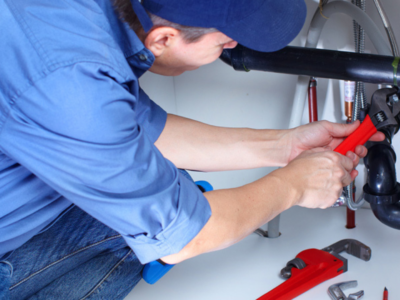In today’s competitive market, flooring companies are grappling with a trifecta of challenges: rising labor costs, material waste, and inefficiencies in scheduling. These hurdles not only inflate operational costs but also cause significant disruptions in service delivery. Poor scheduling practices often lead to delays, unexpected overtime pay, and ultimately, dissatisfied clients who may seek services elsewhere. Amidst these challenges, the key to unlocking cost savings and optimizing operations lies in implementing smarter job scheduling. By refining how projects are scheduled and managed, flooring contractors can drastically reduce waste and enhance efficiency, ultimately driving profitability.
The Hidden Costs of Poor Scheduling
Poor scheduling practices can have far-reaching effects on a flooring company’s bottom line. One of the most visible repercussions is missed deadlines, which can result in client dissatisfaction and potential penalties. When timelines are not met, it reflects poorly on the company’s reliability, leading to a loss of trust and negative word-of-mouth.
Moreover, inefficient use of crews can lead to idle time or, conversely, unnecessary overtime. Both scenarios are costly—idle crews mean paying for unproductive hours, while overtime contributes to escalating labor costs. Additionally, poor planning often results in material waste, as supplies may be ordered prematurely or in incorrect quantities, leading to spoilage or surplus.
Finally, scheduling conflicts can restrict revenue opportunities. When jobs are mismanaged, potential projects might be turned down due to perceived scheduling constraints, resulting in lost income. Addressing these hidden costs through better scheduling can significantly improve a company’s financial health.
How Better Job Scheduling Reduces Costs
Centralized Scheduling
One effective strategy for flooring companies is to adopt a centralized scheduling system. This approach helps avoid conflicts and double-bookings by providing a single platform where all job details and timelines are accessible. By having a clear overview of all ongoing and upcoming projects, managers can allocate resources more effectively and prevent overlaps.
Real-Time Updates
In the dynamic world of flooring, projects can often run longer than anticipated. Implementing real-time updates into the scheduling process allows for instant adjustments, ensuring that crews are not left waiting and that clients are kept informed of any changes. This adaptability minimizes downtime and keeps projects on track.
Crew Allocation
Assigning the right team to the right project is crucial for maximizing efficiency. By analyzing the skills and experience of each crew member, contractors can ensure that teams are well-suited to the specific demands of each job. This targeted allocation not only boosts productivity but also enhances the quality of work delivered.
Job Prioritization
Not all jobs are created equal. Prioritizing high-revenue or urgent projects ensures that the most critical tasks are completed first, thereby maximizing profit potential and client satisfaction. By focusing on these key jobs, flooring companies can optimize their workload and resource utilization.
Route Optimization
For companies with crews working across multiple sites, minimizing travel time is essential. By optimizing routes, businesses can reduce the amount of time crews spend commuting, allowing more time to be devoted to actual project work. This not only cuts fuel costs but also enhances overall job efficiency.
Digital Job Tracking
Utilizing digital job tracking tools can provide invaluable insights into project progress and highlight inefficiencies early on. By monitoring key performance indicators, companies can swiftly identify and rectify any issues, preventing costly overruns. Flooring Business Software can be instrumental in implementing these digital solutions, offering a comprehensive suite of tools tailored to the industry.
The Financial Benefits of Smarter Scheduling
The financial advantages of implementing smarter scheduling are substantial. By reducing unnecessary overtime through better planning, flooring companies can significantly lower labor costs. Moreover, improved crew utilization leads to higher productivity, ensuring that each team member contributes effectively to the company’s output.
Enhanced scheduling also translates to increased client satisfaction. When projects are completed on time and to a high standard, clients are more likely to return for future services and recommend the company to others. Additionally, with streamlined operations, more jobs can be completed each month without incurring additional overhead, further boosting profitability.
Adopting flooring business management software can facilitate these improvements by providing a platform to manage schedules, track progress, and optimize resources efficiently.
Why Flooring Contractors Trust proteams.io for Job Scheduling
proteams.io stands out as a trusted solution for flooring contractors aiming to streamline their scheduling processes. Designed specifically for service-based industries, including flooring, it simplifies crew scheduling, project tracking, and reporting. With both mobile and desktop access, proteams.io ensures real-time coordination across all levels of the business, from office managers to on-site crews.
This comprehensive tool helps contractors reduce costs by minimizing scheduling conflicts and optimizing resource allocation. By increasing efficiency and enabling scalable growth, proteams.io positions flooring businesses to operate more profitably in a competitive market.
Conclusion
The cost challenges faced by flooring contractors due to poor scheduling are significant, affecting everything from labor costs to client satisfaction. However, by embracing smarter scheduling strategies, companies can drastically cut costs, improve efficiency, and enhance profitability. Solutions like proteams.io empower flooring companies to modernize their scheduling processes, ensuring they remain competitive and capable of meeting today’s market demands. By investing in these innovative tools and approaches, flooring businesses can look forward to a more streamlined, profitable future.


